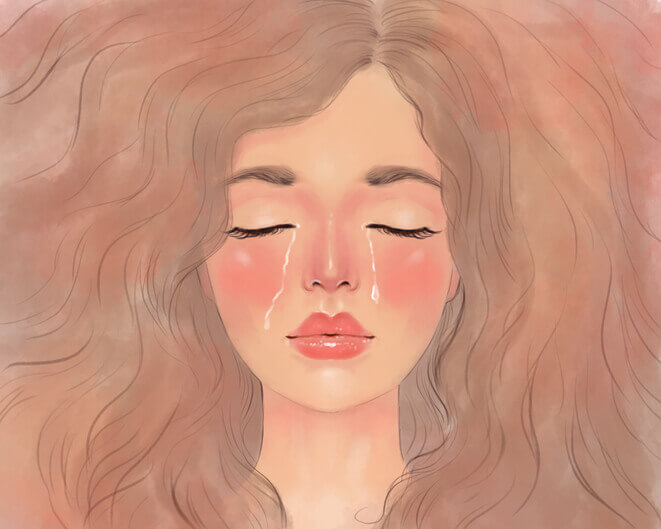The Science of Tear Production: Why Your Eyes Water
Picture yourself enjoying a day outdoors, lounging in the sun, or playing with your dog. Suddenly, a strong wind comes, and some debris makes its way into your eyes. You blink, and they begin to water. While you went to remove the debris from your eye, your eyes themselves began the process immediately, thanks to tear production. Tear production is one of the most basic functions of your organs of sight, and it occurs for an important reason.
What Causes Your Eyes to Water
Tear production happens in your lacrimal gland. The lacrimal gland is an exocrine gland located just above your eye. It produces constant moisture to keep your eyes well-lubricated.
This moisture comes in the form of tears that spread across the surface of the eye when you blink. In fact, according to the American Academy of Ophthalmology, your lacrimal glands produce about 15 to 30 gallons of tears every year!
Your lacrimal glands also produce tears in response to certain stimuli. When a foreign material enters your eye, such as sand, dust, or even a stray eyelash, the lacrimal gland immediately boosts tear production to flush this object from the eye and avoid potential damage.
The Importance of Tear Production
Tear production is one of the most vital functions of your eyes. That is because tears act as your eye’s very own natural defense mechanism. They wash away potential irritants like dirt, dust, or debris that enter the eye socket, shielding your eye from potential damage, scratches, or abrasions. The goal is to keep your eye’s surfaces smooth and clear of foreign matter at all times.
But your eyes don’t only produce tears when wind-blown dust or debris flies in them. Your eyes also rely on tear production for lubrication all day long. Every time you blink your eyelids, tears spread across your eye’s surface. When you don’t have adequate tear production, it leads to a condition called dry eyes. With dry eyes, you may experience the following symptoms:
 Symptoms of Dry Eyes:
Symptoms of Dry Eyes:
- Stinging or burning
- Sensitivity to light
- Mucous around the eye
- Redness within the eye
- Difficulty wearing contact lenses
- Difficulty seeing at night
- Blurred vision
- Eye fatigue
Dry eyes have several possible causes, such as aging, certain medications (antihistamines, decongestants, antidepressants, birth control, and more), other health conditions, constant computer use, environmental factors, and corneal nerve de-sensitivity. Certain risk factors make you more likely to develop dry eyes, such as being over the age of 50, being female, having a vitamin A deficiency, or long-term contact lens use.
If you leave your dry eyes untreated, they can lead to infections, inflammation, corneal damage, and in severe cases, vision loss. That is why it is vital to seek treatment if you find that you have inadequate tear production. Mild or occasional cases may get better with over-the-counter eye drops. Cases caused by contact lens use may improve when you switch to a more lubricated contact lens.
Dry eyes are chronic and produce severe symptoms. You may need prescription medications that increase tear production. A doctor may also prescribe you artificial tear eye inserts, which you place under your eyelid each day to secrete artificial tears and keep the eye lubricated.
Contact Looking Glass Optical
If you are struggling with dry eyes, Looking Glass Optical can improve your vision in no time. Our expert team can perform diagnostic procedures to assess the moisture level of your eyes and determine the underlying cause of your dry eyes.
Once we’ve determined your condition, we can find the best solution for you to get your eyes feeling great again! Contact us today to schedule an appointment with one of our optical care professionals.
